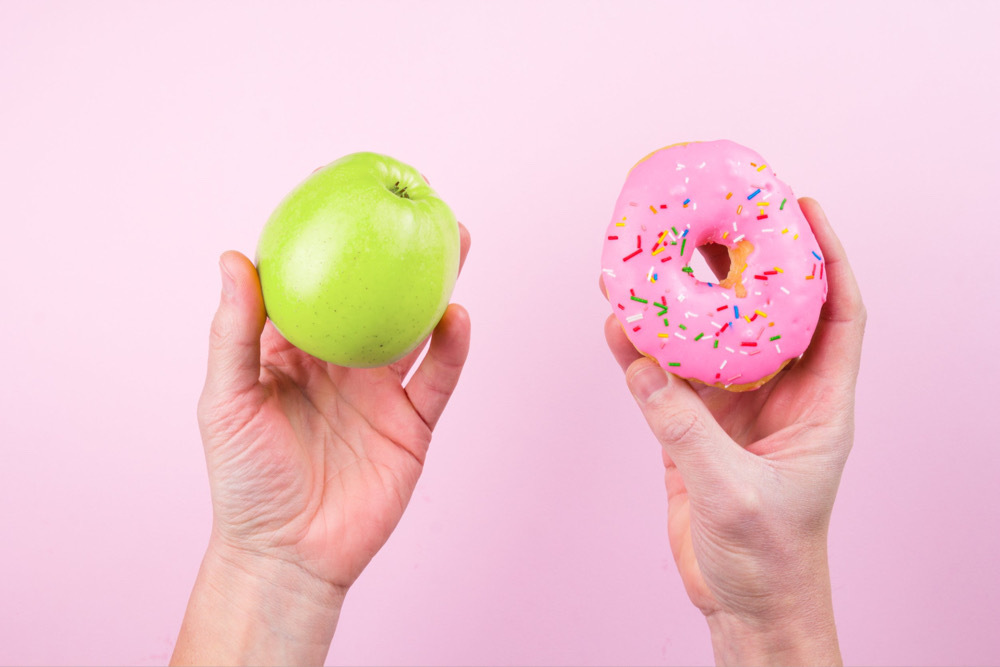Is Diet Culture Healthy? Focus on Whole Foods First
August 1, 2022
Is Diet Culture Healthy? Focus on Whole Foods First

Living a healthy lifestyle takes on a different form for everybody. What foods give energy or lead to weight gain for one person may do something completely different for another. That’s the tricky thing about diets: Individual bodies have individual needs. So, is there a one-size-fits-all diet? Or a diet that is worth pursuing at all? Let’s find out.
The Trouble with Diets
Diets can be controversial. For some, a diet can propel fitness goals. Many find Keto or healthy smoothies for weight loss quite effective. For others, diet culture can lead to bingeing, gaining weight in the long run, and even eating disorders. Aggressive dieters can negatively impact their metabolic rate, meaning a slow rate in which the body burns calories.
Ultimately, we can’t narrow down one’s health and physical state to clothing size or a number on the scale. If you’re having trouble finding a diet that is a positive experience, it may be time to change your strategy. Shifting your focus to what you can eat rather than what you can’t eat may end up being the best thing you can do for your health.
Whole Foods

Experts are directing us to eat the way people did a hundred years ago, saying that eating whole foods not only helps weight loss but promotes better health in the long run. A whole-food diet not only lowers the risks of major illnesses, such as heart disease and cancer but can help people feel healthier and happier immediately in their everyday life. Instead of focusing on restrictions, eating whole foods helps you focus on what you put into your body to fuel it.
What Are Whole Foods?
So, what are whole foods, anyway?
It’s a fairly simple concept. Whole foods are as close to their natural form as possible. This might look like:
- Eating whole grains rather than processed foods
- Drinking whole blends and healthy smoothies rather than sugary energy drinks
- Staying away from added sugars and fillers
- Eating fresh fruits and veggies at breakfast rather than pastries
- Opting for real food when possible rather than pure supplements
Consuming an abundance of fruit and veggies is a hallmark of eating whole foods. Also, before you think that eating whole foods is munching on baby carrots all day, know that there is a vast world of colors and foods to eat. Whether eaten raw, cooked, or blended in an energy smoothie, eating whole foods doesn’t have to look or taste boring.
Eating meat and dairy depends on your personal preference. Some opt for organically raised meat without any added hormones and unpasteurized forms of dairy products (which would include non-cow milk products). Taking a complete vegan approach would simply mean finding your sources of iron, calcium, and other vitamins elsewhere.
Why Eat Whole?
As mentioned before, eating whole foods can provide a myriad of health benefits. Whole foods contain maximum nutritional benefits – benefits that food processing removes. Some of these benefits help prevent health complications and sicknesses, such as heart disease, high blood pressure, diabetes, and even cancer. Whole foods can also help your body lose weight in not only a healthy way but a sustainable way by increasing your metabolic rate. Based on a study, those who eat strictly whole foods over processed have reported increased energy levels, better concentration levels, and more restful sleep. Eating whole foods can not only help you with weight loss goals, but it can also help you feel better overall!
Start Simply

Maybe the most difficult part of ditching fad diets and eating a “diet” rich in whole foods is starting. It can feel daunting to do a complete overhaul of what you may already be used to eating. It can be a lot of work and can often feel more expensive at first. So, here are some ways you can start implementing whole foods into your diet:
Skip the Fast Food:
- Although take-out provides convenience and often yummier alternatives to pre-packaged food found at the grocery store, many restaurants, especially fast-food chains, serve food high in unhealthy additives. Making your own food at home helps you control exactly what ingredients you ingest. As a bonus, cooking at home is often better for your wallet, too!
Choose Whole Grains:
- White flour has already been processed. The next time you’re buying bread, look for 100% whole grains for a more raw form of wheat.
Replace Pre-Packaged Foods with Fresh Produce:
- We can’t emphasize this one enough. Although it’s easy to grab a packaged snack, try replacing those foods with fresh fruit and veggies that you can either prep ahead or by picking up a whole blend from Smoothie King if you’re in a pinch for time.
While diets may work for some – depending on the person – eating whole foods is a great start to your health journey as what you focus on putting into your body can be just, if not more, important than restricting what you are putting in.
We’re Here for You at Smoothie King
Are you looking for an easier way to implement whole foods into your diet? Try Smoothie King – whole blends to help you lead a healthier, happier life!
